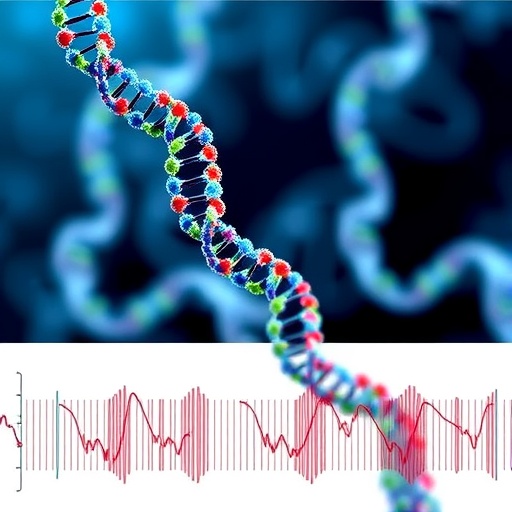The intricate world of mRNA maturation holds immense significance in the realms of gene regulation and the diversification of the proteome. mRNA processing, particularly in eukaryotic cells, is a multifaceted sequence of events characterized by a complex interplay of various mechanisms. These include the utilization of alternative transcription start sites (TSSs), splice sites, and polyadenylation sites, all of which contribute to the generation of diverse mRNA isoforms from a single gene. This is crucial as the refined regulation of mRNA impacts not just the structure of proteins, but their functions within different cellular contexts.
Recent advancements in RNA sequencing technologies, particularly short-read RNA sequencing, have propelled our understanding of alternative RNA processing. This has allowed researchers to more accurately measure alternative TSS usage, alternative splicing events, and variations in polyadenylation. Such high-resolution measurement techniques have proven essential for mapping out the nuances of mRNA maturation in a variety of biological scenarios. However, the intricate timing, coordination, and functional ramifications of these alternative processing events remain challenging to decipher, especially within living organisms.
Enter long-read sequencing (LRS) methodologies. These cutting-edge techniques offer a unique lens through which researchers can examine the landscape of co-transcriptional RNA processing. With the ability to capture longer stretches of RNA, LRS enables scientists to investigate mRNA maturation in unprecedented detail. Unlike short-read sequencing, which segments RNA into smaller pieces for analysis, LRS provides whole-molecule read lengths, enriching our understanding of how mRNA is processed in a more holistic manner.
Long-read sequencing methodologies not only enhance the measurement precision of various RNA processing events but also unravel the complexities of their interdependencies. For example, certain studies have illustrated the remarkable functional links between alternative TSS usage and splicing mechanisms, suggesting that these processes are likely not independent but rather intricately coordinated. This interconnectivity can yield profound implications for the understanding of various diseases, including cancer and neurodevelopmental disorders, underscoring the importance of mRNA processing in health and disease.
In light of these advancements, new findings have emerged that delve into the functional consequences of alternative RNA processing. The ability to more precisely characterize how TSSs, splicing patterns, and polyadenylation sites interact provides a clearer picture of the regulatory networks at play in cells. For instance, altered splicing patterns seen in cancer cells may not only affect the protein products generated but can also influence other cellular processes like apoptosis and proliferation, further complicating disease pathology.
The role of innovative technologies, such as CRISPR gene editing tools, has added another layer of depth to research in RNA processing. These tools enable precise editing and manipulation of genes and regulatory elements involved in RNA maturation, promoting a better understanding of how these elements function together. By leveraging CRISPR technology, researchers have begun to uncover the temporal and spatial coordination of RNA processing events in live cells, shedding light on how perturbations in these processes contribute to disease.
Translating the understanding gained from these technological advancements into therapeutic applications is a challenging, yet essential, next step. For example, targeted therapies that address specific alternative splicing events could hold potential in treating certain types of cancers where these mechanisms have gone awry. The promise lies in the intricate understanding of RNA processing, which when harnessed properly, could lead to breakthroughs in personalized medicine and targeted treatment strategies.
Moreover, as research continues to evolve, the integration of both short-read and long-read sequencing methods is likely to shape the future of genomic research significantly. By combining these approaches, scientists are positioned to gain comprehensive insights into the transcriptomic landscape, illuminating not only what mRNAs are present but also the context in which they are expressed. This integrated view could ultimately facilitate the mapping of gene regulatory networks involved in crucial biological processes.
As we move further into an era of precision genomics, it is clear that understanding alternative RNA processing will be crucial not only for basic research but also for clinical implications. The ongoing exploration of RNA maturation will undoubtedly reveal new regulatory paradigms critical for virtually every aspect of cellular function. With increasing recognition of the complexities tied to mRNA processing, the scientific community is bound to explore beyond traditional paradigms, uncovering innovative solutions to longstanding biological questions.
These advancements in RNA sequencing technologies hold the potential to become powerful tools in the quest to unravel the complexities of gene regulation. With ongoing innovations and an expanding toolkit, researchers are better equipped to tackle the inherent challenges posed by the dynamic nature of RNA processing. The implications set forth by these technologies will likely generate a ripple effect across various fields, paving the way for a deeper comprehension of the cellular mechanisms that underpin life.
In conclusion, the intersection of advanced sequencing technologies and mRNA processing research signifies a crucial turning point in molecular biology. As scientists delve deeper into the roles played by alternative TSS, splicing events, and polyadenylation, they are uncovering a treasure trove of information that could redefine our understanding of gene expression and its regulation. This endeavor not only enriches our scientific landscape but also lays the groundwork for future innovations that could reshape therapeutic strategies in modern medicine.
In summary, the excitement surrounding RNA processing research, propelled by sophisticated sequencing methodologies, bodes well for the next generation of molecular biology. The opportunities for breakthroughs appear limitless as the scientific community harnesses the collective power of these advancements to illuminate the complexities of RNA maturation and its far-reaching implications in health and disease.
Subject of Research: Alternative RNA Processing Dynamics
Article Title: Elucidating the coordination of RNA processing using short-read and long-read RNA-sequencing methods.
Article References:
Alfonso-Gonzalez, C., Hilgers, V. Elucidating the coordination of RNA processing using short-read and long-read RNA-sequencing methods.
Nat Rev Mol Cell Biol (2025). https://doi.org/10.1038/s41580-025-00895-4
Image Credits: AI Generated
DOI: 10.1038/s41580-025-00895-4
Keywords: mRNA maturation, gene regulation, RNA processing, RNA sequencing, alternative splicing, long-read sequencing, CRISPR, molecular biology.




